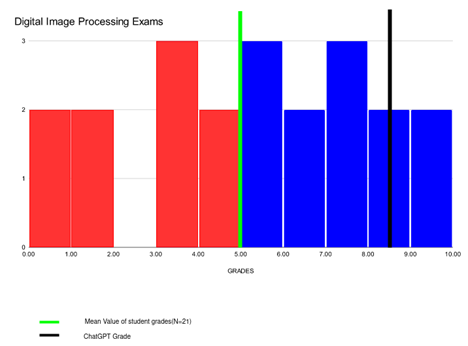Abstract
This lecture overviews the impact of the Large Language Models, particularly of ChatGPT language model in Education, e.g., in Universities. First it present the ChatGPT transformer structure and ChatGPT training. It also overviews ChatGPT capabilities in language processing (e.g., text translation, summarization, text sentiment analysis, dialogue tasks, misinformation detection, code understanding and generation). The ChatGPT implications on education are presented, notably its capabilities to reply exam questions, including mathematical and programming ones. ChatGPT raises serious issues with respect to both its constructive use in education environments and its malicious use in course projects and exams. The impact of Large Language Models, and more generally Generative AI, in the structure of University education is detailed, as all sciences are increasingly mathematized and new scientific disciplines emerge (e.g., AI Science and Engineering) or are expected to emerge (e.g., Mind and Social Science and Engineering). LLM memory/inference capabilities, limitations (e.g., halucinations), and open questions and regulatory proposals are presented. Finally, a possible overhaul of the education system at all levels is proposed to address social challenges coming out of the extensive LLM and Generative AI use.
On the 3rd February 2023 I run the winter semester exams for the Aristotle University of Thessaloniki (AUTH) senior undergraduate course on ‘Digital Image Processing’. The questions were simpler and less mathematical than usual for various reasons (e.g., to run the presented experiment).
We submitted the questions to ChatGPT and got the replies. The pdf is attached.
Apart for glitches and errors here and there, ChatGPT fared very well. I did not read the replies in detail, but I would mark it around 8 in the scale [0,..,10], 10 being the best mark.
Here are some rather surprising findings:
1) ChatGPT can mimic rather well mathematical reasoning, e.g., on 2D systems, z transforms, Fourier transforms, complex numbers.
2) ChatGPT could present fairly well physical phenomena properties with some ‘reasoning’ (with or without quotation marks), which is beyond a successful classical text synthesis.
Needless to say, ChatGPT can provide programming solutions, e.g., to calculate the arithmetic mean and moving average filter output in Python, as can be seen in the attached example.
I have presented in detail the great capabilities of Generative DNNs and also of Computational Algebra in my recent book (10/2022):
Ioannis Pitas, “Artificial Intelligence Science and Society Part A: Introduction to AI Science and Information Technology“, Amazon/Createspace,
https://www.amazon.com/dp/9609156460?ref_=pe_3052080_397514860
It seems that the DNN development greatly accelerated, notably in Transformers and Reinforcement Learning for natural language modeling, as employed in ChatGPT, which was released in November 2022.
Thus, we have a real education issue here not only in liberal studies, but in exact science and engineering as well, at least at exam level.
There are various quick ways to handle it, with proper exam paradigm shift and at the expense of much more effort on behalf of Profs and tutors.
However, in my view, the real issue is how to turn Generative DNNs to our advantage in education. This topic deserves a thorough research and can lead in education breakthroughs.
I would like to thank the AUTH PhD candidate Ms. I. Valsamara for eliciting and compiling the ChatGPT replies.
Enjoy!
Prof. Ioannis Pitas
Email: pitas@csd.auth.gr
Chair of the International AI Doctoral Academy (AIDA)
Head of the Artificial Intelligence and Information Analysis Laboratory
Department of Informatics, Aristotle University of Thessaloniki, Greece

Figure: ChatGPT in CS/ECE exams: very good score in mathematical questions.
ChatGPT programming: arithmetic mean and 1D moving average filter routines in Python.
Large-Language-Models-ChatGPT-and-Un-Education-v4.0Literature
https://www.nytimes.com/2023/03/08/opinion/noam-chomsky-chatgpt-ai.html
Noam Chomsky on ChatGPT: It’s “Basically High-Tech Plagiarism” and “a Way of Avoiding Learning”

